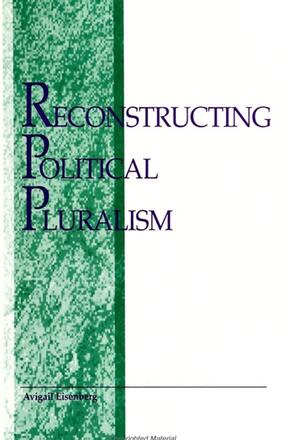
Reconstructing Political Pluralism
Alternative formats available from:
A reappraisal of the pluralist tradition that explores the accounts offered by James, Dewey, Figgis, Cole, Laski, Follett, and Dahl and extracts from them the resources with which to reconstruct a democratic theory of political pluralism.
Description
This reappraisal of the pluralist tradition systematically explores accounts of political pluralism offered by James, Dewey, Figgis, Cole, Laski, Follett, and Dahl and shows how each variant contains a distinct account of the relation between group power, individual interest, and self-development. These historical accounts provide the resources with which Eisenberg reconstructs a democratic theory of political pluralism. At the center of political pluralism, she argues, is a pluralist approach to self-development that can address the key ambiguities of identity politics and provide a more effective means to balance the power relations between individuals and communities than can individualist or communitarian approaches.
Avigail I. Eisenberg is Assistant Professor in the Political Science Department at the University of British Columbia, Vancouver.
Reviews
"Focusing attention on pluralism, its history, and its possible contribution to recent issues in political theory, this book displays an emphasis that has not been prevalent in recent scholarship. This is a nonstandard and refreshing approach to pluralist theory written from an external but sympathetic perspective." -- Carol C. Gould, Stevens Institute of Technology
"This book connects the contemporary concerns of the liberalism-communitarianism debate to an older political science literature that is rarely mentioned, or perhaps even read, by contemporary theorists. Eisenberg succeeds in showing that this earlier literature is both relevant and illuminating. The connections she makes between group pluralism and individual self-development are an important contribution." -- Joseph H. Carens, University of Toronto